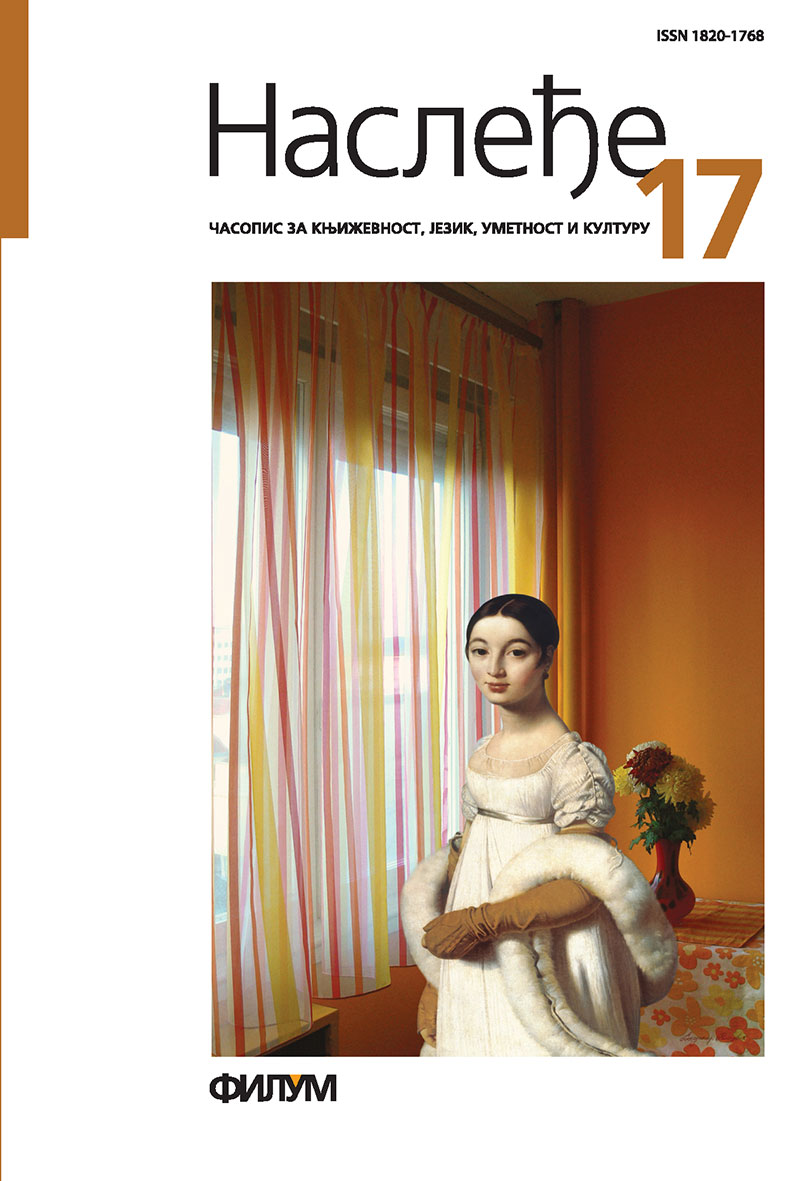PRONUNCIATION TENDENCIES TOWARDS BRITISH AND AMERICAN ENGLISH IN EFL TEACHERS IN SERBIA: ARE TEACHERS IMMUNE TO GLOBAL INFLUENCES?
Keywords:
American English (AmE), British English (BrE), EFL teachers, pronunciation tendenciesAbstract
The way we pronounce things has always been a distinguishing mark in terms of social, geographical, historical and cultural characteristics of a certain accent. The authors of this paper have conducted research in order to determine which variety, in terms of pronunciation, is most frequently used in Serbia. The examined group included 50 English language teachers from different parts of Serbia, age (M=35.24, SD=6.06), mainly female, who were tasked with a questionnaire and assessment sheet, specifically designed for this occasion. In analysing the gathered data, descriptive statistics, 2 and t- test were applied, as well as qualitative analysis. To conclude, the results gathered have shown that the formed groups, according to the assessment sheet results, tend to stay within the chosen variety, with the Mix group having great tendency towards American English. Moreover, there is a significant difference between the participants’ subjective view and the assessment sheet results (BrE: p<.05; AmE: p<.01). This difference has appeared dependent on the bivalent influence (BrE: education; AmE: the media).
References
Алџео 1998: J. Algeo, America is Ruining the English Language, у: L. Bauer, P. Trudgill (ред.), Language Myths, London: Penguin Books, 176–182.
American English. Online-dictionary of difficult words. Hutchinson Encyclopedia: Helicon Publishing, LTD. <http://www.tiscali.co.uk/reference/dictionar-ies/english/data/d0081550.html> 6.12. 2008
Канагараџа 2006: S. A. Canagarajah, Changing Communicative needs, Re-vised assessment objectives: Testing English as an international language, Lon-don: Language Assessment Quarterly, 3 (3), 229–242.
Дор 2004: D. Dor, From Englishization to Imposed Multilingualism: Globalization, the Internet, and the Political Economy of the Linguistic Code, New York: Public Culture, 16 (1), 97–118.
Гимсон 1989: A. C. Gimson, An Introduction to the Pronunciation of English (4. рев. издање). S. Ramsaran (ред.), London: Edward Arnold.
Гимсон 2001: A. C. Gimson, Gimson’s Pronunciation of English (6. издање). A. Cruttenden (ред.), London: Edward Arnold.
Грубор , Бјелогрлић, Хинић 2008: J. Grubor, N. Bjelogrlić, D. Hinić, British or American English in Serbia, or Both?, Крагујевац: Nasleđe, Kragujevac, 5 (11), 123–131.
Хлебец 2004: B. Hlebec, A Textbook of English Phonology (4. издање), Beograd: Čigoja Štampa.
Џенкинс 2000: J. Jenkins, The Phonology of English as an International Language, Oxford: Oxford University Press.
Џенкинс 2003: J. Jenkins, World Englishes: A Resource Book for Students, London: Routledge.
Џенкинс 2006: J. Jenkins, Current perspectives on teaching World Englishes and English as a lingua franca, TESOL Quarterly 40, Alexandria, Virginia, 157–181.
Кашру 1992: B. Kachru, Models for Non-Native Englishes, у: B. Kachru (ред.), The Other Tongue: Englishes across Cultures (2. издање), Urbana, Chicago: University of Illinois Press, 48–74.
Мекеј 2002: S. L. McKay, Teaching English as an international language: Rethinking goals and approaches, Oxford: Oxford University Press.
Модиано 1999a: M. Modiano, International English in the global village, Cambridge, English Today, 15 (2), 22–34.
Модиано 1999b: M. Modiano, Standard English(es) and educational practices for the world’s lingua franca. English Today, Cambridge, 15 (4),
3–13. Ричардс, Плат, Вебер 1985: J. Richards, J. Platt, H. Weber, Longman dictionary of applied linguistics, Harlow: Longman.
Салверда 2002: R. Salverda, Language diversity and international communication, Cambridge, English Today, 18 (3), 3–11.
Саидлхофер 2001: B. Seidlhofer, Closing a conceptual gap: The case for a description of English as a lingua franca, Chichester, International Journal of Applied Linguistics, 11 (2), 133–58.
Саидлхофер 2004: B. Seidlhofer, Research perspectives on teaching English as a lingua franca, Cambridge, Annual Review of Applied Linguistics, 24, 209-239.
Стревенс 1992: P. Strevens, English as an International Language, у: B. Kachru (ред.), Other Tongue: English Across Cultures (2. издање), Urbana, Chicago: University of Illinois Press, 24–27.
Велс 1990: J. Wells, Longman Pronunciation Dictionary, Harlow: Longman. Велс 1992: J. Wells, Accents of English 1. An Introduction, Cambridge, New York, Victoria: Cambridge University Press.
Велс 1993: J. Wells, Accents of English 3. Beyond the British Isles, Cambridge, New York, Melbourne: Cambridge University Press.
Велс 2000: J. Wells, British English pronunciation preferences: a changing scene, Cambridge, Journal of the International Phonetic Association, 29 (1), 33-
Јано 2001: Y. Yano, World Englishes in 2000 and beyond. World Englishes, Chichester, 20 (2), 119–132.
Јилдирим, Окан 2007: R. Yýldýrým, Z. Okan, The Question of Global English-Language Teaching: A Turkish Perspective, у: P. Robertson, J. Adamson, R. Nunn (ред.), Asian EFL Journal Quarterly. Conference Proceedings. English as an International Language: Setting the Standards, Tortola: Тhe Asian EFL Journal Press, 54–66.






